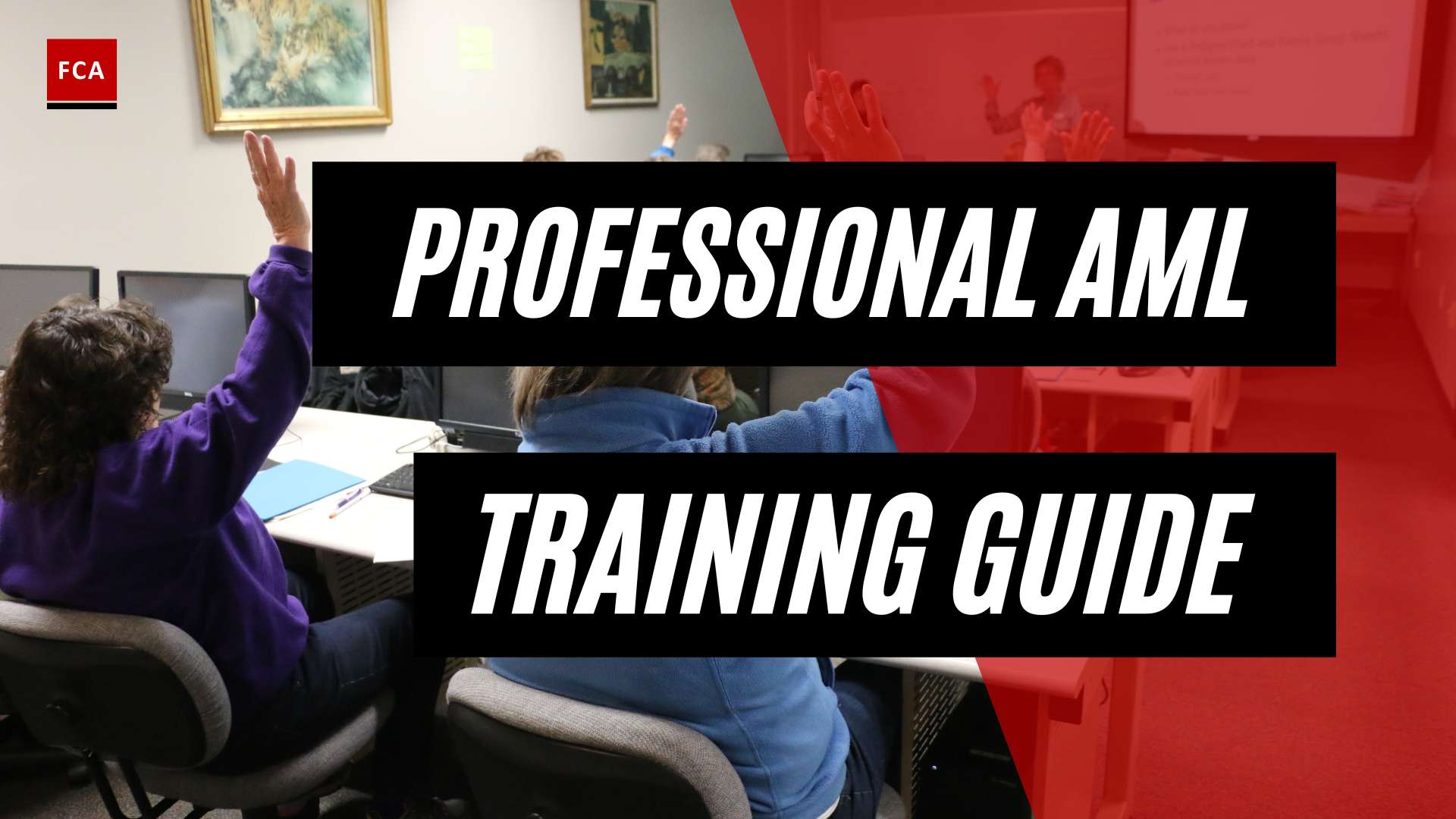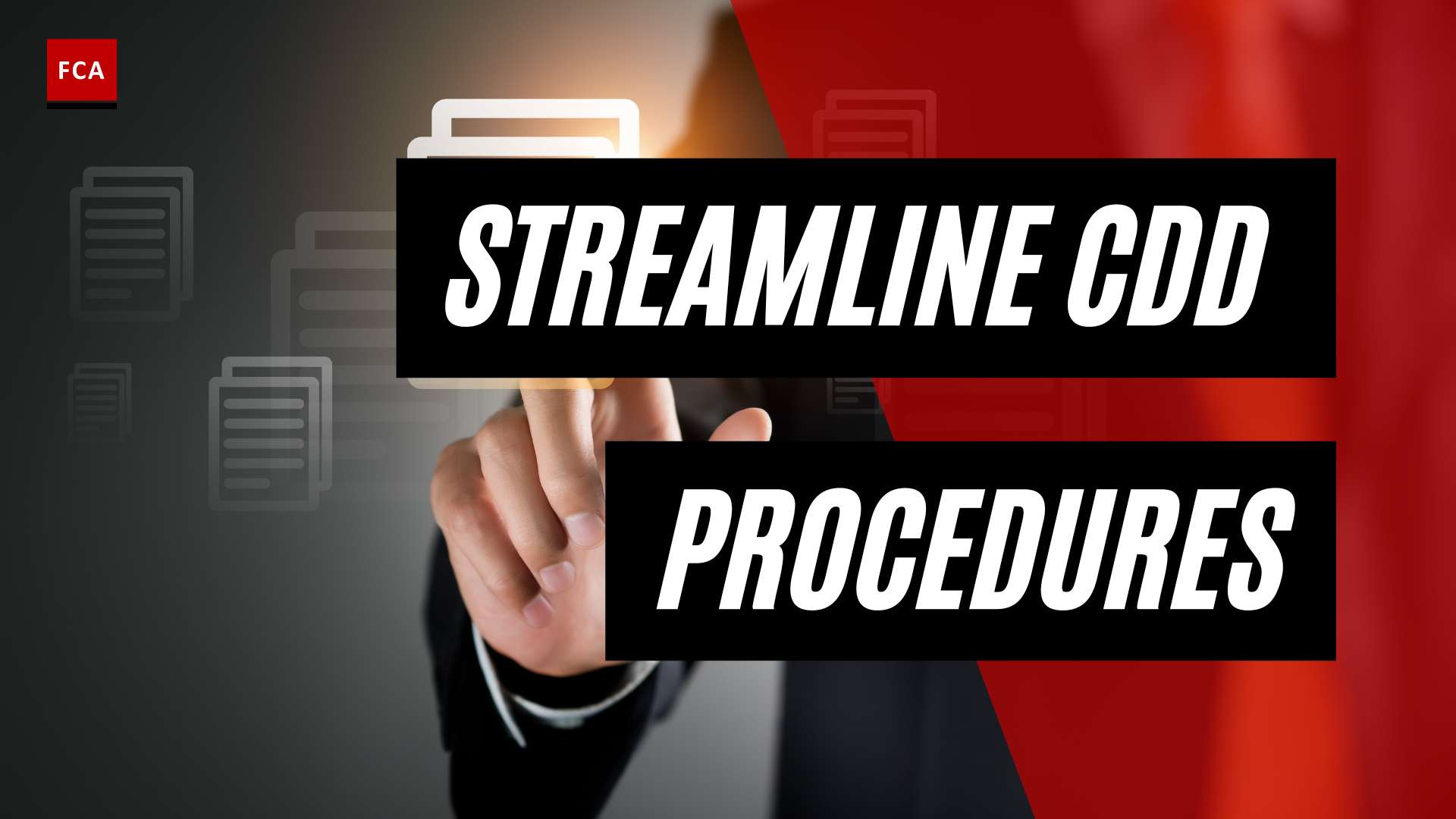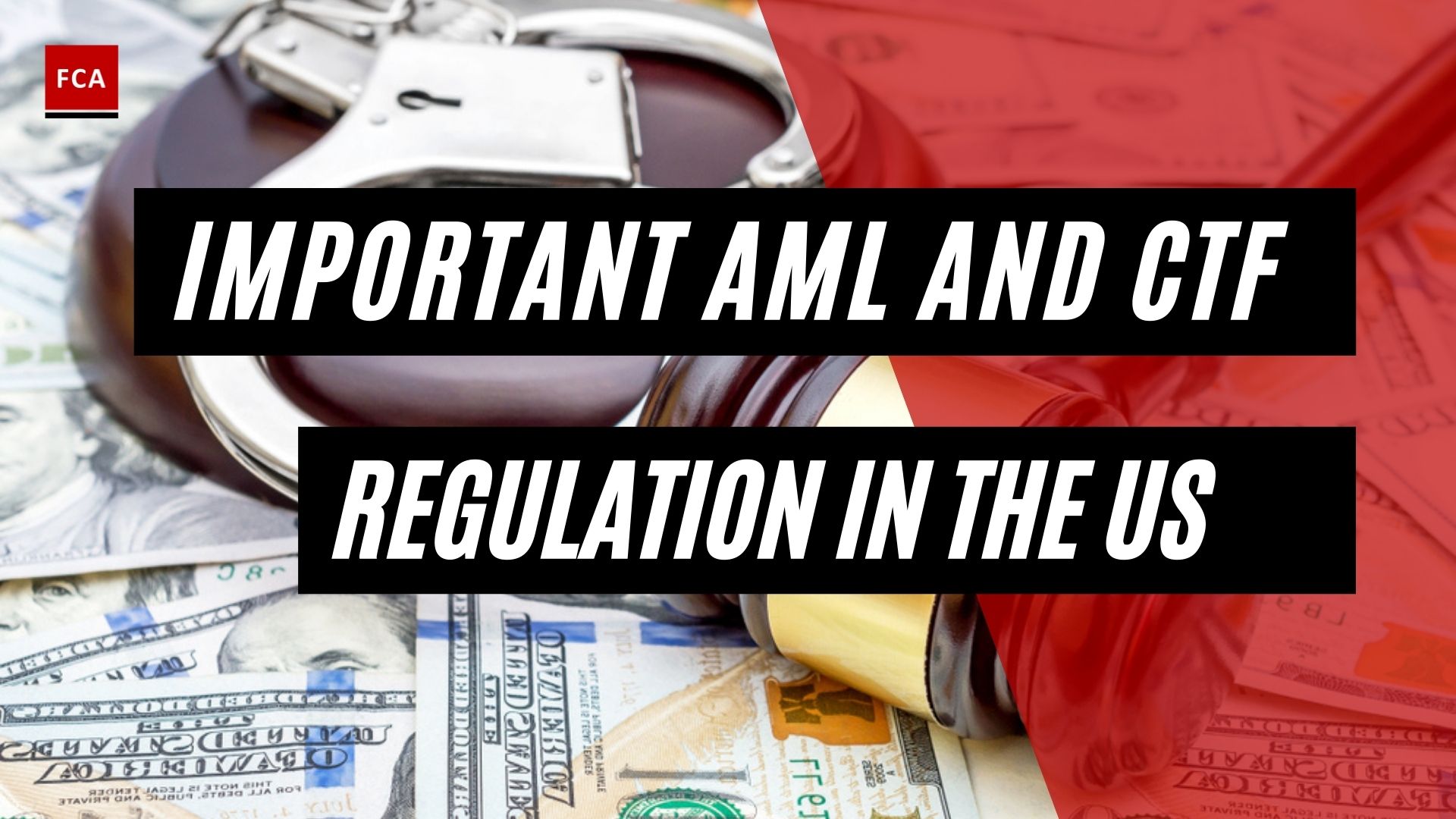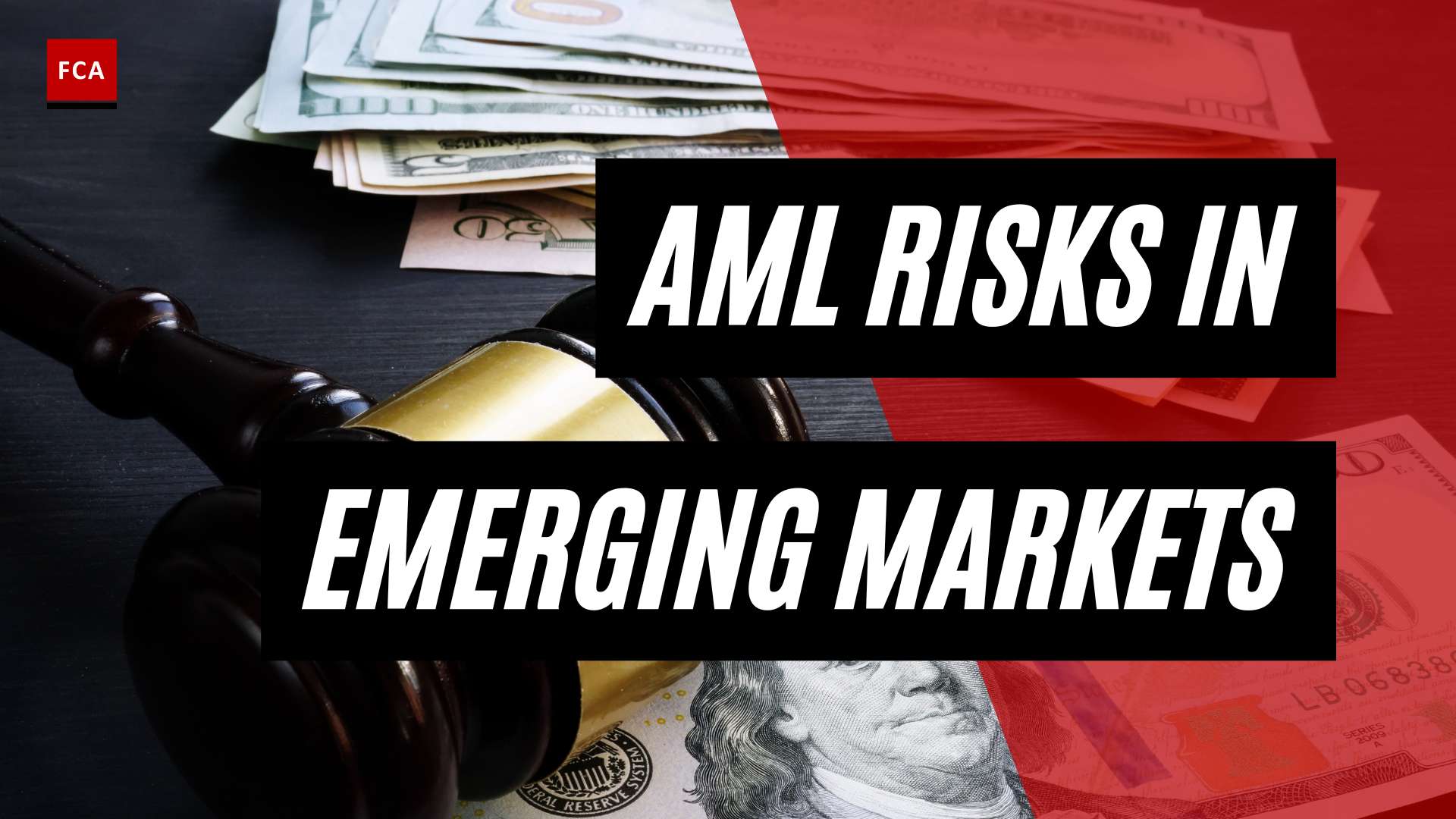AML Recruitment Trends: An Overview
As the global need for robust anti-money laundering (AML) measures continues to grow, recruitment trends in the AML field are evolving to meet the demands of an ever-changing regulatory landscape. This section provides an overview of the current trends in AML recruitment, including the growing demand for AML professionals and the emergence of new roles within the field.
Growing Demand for AML Professionals
According to Arctic Intelligence, there is a noticeable increase in the demand for AML professionals worldwide, driven by regulatory changes and the need for effective financial crime prevention (Arctic Intelligence). Financial institutions, in particular, are striving to upscale their AML teams to combat money laundering and terrorist financing activities more efficiently (Arctic Intelligence).
Regions such as APAC, Europe, the UK, and the US are witnessing a surge in job openings for AML roles, indicating the global demand for skilled AML professionals (Arctic Intelligence). This trend reflects the industry’s recognition of the importance of having a knowledgeable and dedicated workforce to manage compliance requirements.
Emerging Roles in AML Recruitment
To address the evolving regulatory landscape and combat financial crimes effectively, organizations are creating new roles within their AML departments. These emerging positions include Head of Financial Crime, MLRO (Money Laundering Reporting Officer), Deputy MLRO, and AML Technology Specialists. These roles are designed to ensure that financial institutions have the expertise and resources necessary to meet regulatory obligations and mitigate risks.
The emergence of these specialized positions highlights the need for AML professionals with diverse skill sets. Employers are seeking individuals with expertise in financial crime, data analytics, and technology to tackle the challenges posed by the ever-evolving financial crime landscape (Arctic Intelligence). This shift towards more specialized roles within the AML domain reflects the industry’s recognition of the importance of staying ahead of financial criminals by leveraging advanced skills and knowledge.
As organizations continue to invest in AML compliance and strengthen their efforts to combat financial crimes, the demand for skilled AML professionals is expected to grow. The AML recruitment landscape is evolving to meet these demands, with a focus on specialized roles and the acquisition of expertise in areas such as financial crime, data analysis, and technology. AML professionals who stay up-to-date with the latest trends and possess the necessary skills will find themselves well-positioned for rewarding career opportunities in this dynamic field.
Industries at Risk of Money Laundering and Financial Crimes
To effectively combat money laundering and financial crimes, it’s essential to identify the industries that are at high risk. By understanding these industries, AML professionals can focus their efforts on implementing robust compliance measures and detecting potential illicit activities. Let’s explore the high-risk industries for money laundering and the importance of identifying money laundering risks in different sectors.
High-Risk Industries for Money Laundering
Several industries are particularly vulnerable to money laundering and terrorist financing. These industries include:
- Financial Institutions: Banks, currency exchange houses, check cashing facilities, and payment processing companies are prime targets for money laundering due to the large volume of financial transactions they handle. The complex nature of financial systems can make it easier for illicit funds to be disguised and integrated into the legitimate economy.
- Real Estate: The real estate sector presents significant money laundering risks, especially in transactions involving high-value properties. Criminals may use real estate purchases as a means to legitimize illicit funds, particularly when the source of cash is unclear. Rigorous due diligence is crucial in identifying suspicious transactions in this industry.
- High-Value Assets: Industries dealing with high-value assets like cars, boats, and luxury goods are susceptible to money laundering. Criminals may use these assets as a means to convert illicit funds into tangible assets that can be easily moved or sold.
- High-Risk Countries: Businesses operating in high-risk countries, where weak regulatory environments and limited oversight exist, face increased money laundering risks. These countries may lack effective anti-money laundering measures, making it easier for illicit funds to be laundered through various industries.
It’s important to note that these industries are not inherently involved in illegal activities. However, due to their characteristics and the nature of their operations, they are more susceptible to exploitation by money launderers and criminals.
Identifying Money Laundering Risks in Different Sectors
Apart from high-risk industries, various factors can indicate potential money laundering risks within different sectors. These factors include:
- Cash Intensive Businesses: Industries where customers primarily pay with cash, such as privately-owned liquor or convenience stores, money service organizations, and businesses involved in cash-intensive activities like gambling, can present higher risks of money laundering. Cash transactions can be difficult to trace and may indicate illegal activities.
- Politically Exposed Persons (PEPs): Conducting business with politically exposed persons, individuals who hold prominent public positions or have close ties to influential persons, poses a greater risk for money laundering. Businesses dealing with PEPs need to implement enhanced due diligence measures to mitigate the risks associated with potential corruption and illicit financial activities.
- High Volumes of Electronic Payments: Industries that handle high volumes of electronic payments, such as ACH, wire transfers, remittances, and prepaid cards, can be indicative of illegal activities. Criminals may exploit these payment systems to move and launder illicit funds. Businesses operating in these industries should implement robust monitoring and transaction screening measures.
- Virtual Services: Industries that provide services virtually, such as remote banking and payment services, currency exchanges, and real estate transactions without physical presence, face higher risks of being exploited for money laundering and terrorist financing. The lack of face-to-face interactions can make it easier for criminals to disguise their identities and illicit activities.
By identifying the industries and sectors at high risk of money laundering, AML professionals can prioritize their efforts and implement effective compliance measures. This proactive approach helps in the detection, prevention, and deterrence of financial crimes, safeguarding the integrity of the financial system and protecting businesses and individuals from the consequences of money laundering and illicit financial activities.
Regional AML Recruitment Trends
The field of anti-money laundering (AML) is witnessing a global demand for professionals who possess the necessary skills and expertise to combat financial crimes. This section will explore the global demand for AML professionals and highlight the country risk rankings according to the Basel AML Index.
Global Demand for AML Professionals
The global demand for AML professionals is on the rise, reflecting the increasing need for a skilled workforce to manage compliance requirements in various regions. Regions such as APAC, Europe, the UK, and the US have seen a surge in job openings for AML roles, indicating the growing importance of AML expertise in combating money laundering and financial crimes (Arctic Intelligence). This demand extends to professionals working in compliance, risk management, and anti-financial crime roles.
As organizations and financial institutions strengthen their AML frameworks and face evolving regulatory requirements, the demand for AML professionals with specialized knowledge continues to grow. Professionals with relevant AML certifications and qualifications have a competitive advantage in the job market. To explore available job opportunities in the AML field, you can refer to dedicated websites and platforms that list AML job openings and provide resources for AML job search.
Basel AML Index: Country Risk Rankings
The Basel AML Index, compiled by the Basel Institute of Governance, provides valuable insights into the risk of money laundering and terrorist financing across different countries. It utilizes data from 15 publicly available sources, including the Financial Action Task Force, the World Bank, and the World Economic Forum, to rank countries based on their risk levels in addressing vulnerabilities over time (Sanction Scanner).
The index serves as a useful tool for assessing the effectiveness of AML frameworks and the level of risk in different jurisdictions. It takes into account factors such as the quality of AML/CFT frameworks, corruption levels, political stability, and enforcement measures. By analyzing the Basel AML Index, organizations and professionals can gain insights into the risk landscape and tailor their AML strategies accordingly.
Here are some key insights from the Basel AML Index:
| Country | Risk Score |
|---|---|
| Iceland | 2.87 |
| Finland | 2.89 |
| Estonia | 2.93 |
According to the Basel AML Index, these countries have the lowest risk of money laundering and terrorist financing, signaling the strength of their AML frameworks and preventive measures (Sanction Scanner). It’s important to note that these risk scores are subject to change as countries continue to enhance their AML frameworks and address vulnerabilities.
The Basel AML Index also provides insights into regional risk levels. In Europe and Central Asia, for example, there is considerable diversity in AML/CFT frameworks among countries, highlighting challenges in supervision, preventive measures, and transparency of beneficial ownership systems. Despite a relatively low average risk score, there are variations within the region that require attention and improvement (Sanction Scanner).
By staying informed about regional AML recruitment trends and understanding country risk rankings, professionals can make informed decisions regarding their career paths in the AML field. Developing the sought-after skills and expertise, and staying updated with the evolving AML landscape, can enhance career opportunities in this dynamic and critical field.
Skills and Expertise in AML Recruitment
To excel in the field of Anti-Money Laundering (AML), professionals need to possess specific skills and expertise that are highly sought after in the AML recruitment market. A combination of financial crime knowledge, data analytics proficiency, and technological acumen is becoming increasingly essential as the AML landscape evolves.
Sought-After Skills in AML Professionals
AML professionals with diverse skill sets are becoming highly desirable, reflecting the shift towards more specialized roles within the AML domain. Some of the sought-after skills in AML professionals include:
- Financial Crime Expertise: A solid understanding of financial crime, money laundering typologies, and regulatory frameworks is crucial for AML professionals. Proficiency in risk assessment, fraud detection, investigation management, and regulatory compliance are highly valued.
- Data Analysis: The ability to analyze large volumes of data and identify patterns or anomalies is essential in detecting and preventing money laundering activities. AML professionals should be skilled in data analytics, data visualization, and using advanced tools and technologies to extract meaningful insights from complex data sets.
- Technology Proficiency: With the rise of online financial transactions and digital banking, AML professionals need to be adaptable to technological advancements. Expertise in digital financial services, cybersecurity, and knowledge of emerging technologies like blockchain and cryptocurrency is increasingly important in combating money laundering through digital channels.
- Continuous Learning: The AML field is dynamic, with new trends, technologies, and regulations emerging constantly. AML professionals should demonstrate a commitment to continuous learning and professional development. Staying updated with the latest trends in financial crimes, cybersecurity, and technology is essential for staying competitive in the industry.
For a more comprehensive understanding of the skills and qualifications sought by employers in AML recruitment, refer to our article on AML professional qualifications. Additionally, incorporating relevant keywords and skills such as AML compliance, investigation, suspicious activity reports, and fraud prevention in your resume can enhance your chances of securing AML roles (ZipRecruiter).
The Importance of Technology and Data Analytics
Technology and data analytics play a pivotal role in AML recruitment trends and the fight against financial crimes. Financial institutions are increasingly investing in technology to enhance their AML compliance programs and mitigate risks associated with money laundering. The importance of technology and data analytics in AML recruitment can be summarized as follows:
- Enhanced Detection: Advanced technologies, including artificial intelligence (AI) and machine learning (ML), have revolutionized the detection of suspicious activities and patterns indicative of money laundering. These technologies can analyze vast amounts of data in real-time, identifying potential risks more efficiently than traditional methods.
- Automation and Efficiency: Technology enables automation of manual AML processes, reducing the time and effort required for compliance tasks. Automation helps financial institutions streamline their AML operations, enhancing efficiency, and allowing professionals to focus on more complex and strategic aspects of AML compliance.
- Data-Driven Decision Making: Data analytics provides AML professionals with actionable insights derived from both internal and external data sources. These insights can inform decision-making processes, risk assessments, and the development of effective AML strategies. Leveraging data analytics allows for a more proactive and targeted approach to combating money laundering.
- Regulatory Compliance: The adoption of new technologies facilitates adherence to evolving regulatory requirements. Financial institutions can leverage technology to ensure compliance with anti-money laundering regulations, such as Know Your Customer (KYC) and Customer Due Diligence (CDD) processes, data privacy regulations, and reporting obligations.
To stay ahead in the rapidly evolving AML field, professionals should embrace the importance of technology and develop proficiency in data analytics. By combining financial crime expertise with technological acumen, AML professionals can contribute significantly to the detection and prevention of money laundering activities. For more information on AML career opportunities, refer to our article on AML career opportunities.
AML Compliance and Financial Institutions
Ensuring robust Anti-Money Laundering (AML) compliance is a top priority for financial institutions worldwide. In recent years, there has been a significant increase in investments dedicated to AML compliance measures. Financial institutions are recognizing the importance of combating money laundering and financial crimes to maintain the integrity of the global financial system.
Increasing Investments in AML Compliance
Financial institutions have substantially increased their investments in AML compliance, with annual global AML spending projected to reach $30.1 billion by 2024, indicating a 20% increase from 2019 to 2024, according to the Financial Action Task Force (FATF) report. Large banks, in particular, allocate about 10-15% of their global budgets to AML compliance, amounting to 80% of total AML compliance spending (FATF). This substantial investment demonstrates the recognition of the importance of AML compliance and the commitment of financial institutions to combat money laundering and financial crimes.
Adoption of New Technologies for AML Compliance
With the rapid advancements in technology, financial institutions are increasingly turning to new technologies to enhance their AML compliance efforts. About 60% of AML professionals believe that new technologies present the biggest opportunity for their organization’s AML compliance, while 59% also see new technologies as the biggest threat (FATF). The adoption of new technologies is projected to be highest in the Asia Pacific region, followed by Europe, the Middle East, and Africa (EMEA), and the Americas (FATF).
Over the next 3-5 years, the adoption of new technologies for AML compliance is expected to be widespread. Predictive analytics, machine learning, and robotic process automation are among the most prominent technologies being utilized. These technologies have the potential to enhance the effectiveness and efficiency of AML compliance efforts by analyzing vast amounts of data, identifying suspicious patterns, and automating manual processes. By leveraging advanced technologies, financial institutions can stay ahead of emerging risks, strengthen their AML compliance programs, and adapt to the evolving landscape of financial crimes.
As financial institutions continue to invest in AML compliance, the importance of skilled professionals with expertise in AML regulations, risk assessment, and the utilization of new technologies becomes increasingly evident. A career in AML offers promising opportunities for individuals with the right qualifications and a commitment to combatting money laundering and financial crimes. Stay informed about the latest AML recruitment trends, AML job openings, and AML professional qualifications to explore the diverse career possibilities in this field.
Career Opportunities in AML
The field of Anti-Money Laundering (AML) offers a range of career opportunities for professionals interested in combating financial crimes and ensuring compliance with regulations. Two key roles within AML are AML Investigator and AML Analyst. Let’s explore the skills, duties, and qualifications required for each role.
AML Investigator: Skills and Duties
AML investigators play a crucial role in financial institutions, working to detect, investigate, and prevent money laundering activities. The job market for AML investigators is expected to grow by 8% from 2020 to 2030, which is faster than the average for other occupations (ZipRecruiter). To excel in this role, AML investigators should possess the following skills:
- Risk assessment: AML investigators must be able to identify potential money laundering risks and assess the compliance levels of financial transactions.
- Regulatory compliance: Knowledge of AML laws, regulations, and industry best practices is essential for ensuring compliance and adherence to anti-money laundering policies.
- Fraud detection: AML investigators need to be skilled in recognizing suspicious activity patterns and identifying potential fraudulent transactions.
- Financial services: Understanding the financial services industry, including banking, insurance, and investment, is crucial for effectively investigating money laundering activities.
- Investigation management: AML investigators should have strong investigative skills, including conducting interviews, gathering evidence, and preparing comprehensive reports.
In addition to these skills, AML investigators should stay updated with the latest trends and technologies in financial crimes. Continuous learning and professional development in areas like cryptocurrency, blockchain, and data analytics are becoming essential for staying competitive in the AML field (ZipRecruiter). AML investigators are often employed by industries such as banking, insurance, financial services, and regulatory agencies like the Securities and Exchange Commission (SEC), Financial Industry Regulatory Authority (FINRA), and Financial Crimes Enforcement Network (FinCEN) (ZipRecruiter).
AML Analyst: Required Skills and Qualifications
AML analysts play a vital role in preventing money laundering and financial crimes by conducting risk assessments, analyzing data, and implementing effective AML strategies. The demand for AML analysts is high, with a projected growth rate of 19% from 2018 to 2028, much faster than the average for all occupations (Indeed). To thrive in this role, AML analysts should possess the following skills:
- Critical thinking: AML analysts must have strong analytical and critical thinking skills to identify patterns, anomalies, and potential risks associated with money laundering activities.
- Attention to detail: Being detail-oriented is essential for AML analysts as they need to thoroughly examine financial transactions, customer profiles, and other relevant data to detect any suspicious activity.
- Communication skills: Effective communication is crucial for AML analysts to collaborate with other team members, present findings, and provide recommendations to senior management and regulatory authorities.
- Data analysis: Proficiency in data analysis tools and techniques is essential for AML analysts to analyze large volumes of data and identify potential money laundering patterns.
- Knowledge of laws and regulations: AML analysts should have a comprehensive understanding of AML laws, regulations, and industry standards to ensure compliance and implement effective AML strategies.
In terms of qualifications, AML analysts typically hold a bachelor’s degree in finance, accounting, business, or a related field. Many employers also prefer candidates with certifications such as Certified Anti-Money Laundering Professional (CAMP) or Certified Fraud Examiner (CFE). These certifications demonstrate expertise in AML practices and procedures.
The top industries for AML analyst roles include banking and financial institutions, insurance companies, government agencies, and consulting firms. These sectors often have dedicated compliance teams to manage AML risks and ensure regulatory compliance (Indeed).
By acquiring the necessary skills and qualifications, professionals can pursue rewarding careers as AML investigators or AML analysts. Continuous learning, staying updated with industry trends, and obtaining relevant certifications can enhance career prospects and open up new opportunities in the ever-evolving field of AML.
Future Trends in AML Recruitment
As the field of anti-money laundering (AML) continues to evolve, new trends are shaping the recruitment landscape for AML professionals. In this section, we explore two key future trends in AML recruitment: the enhancement of AML with artificial intelligence (AI) and the collaboration between regulators and RegTech companies.
Enhancing AML with Artificial Intelligence
The integration of artificial intelligence (AI) with AML processes is becoming increasingly important in the fight against money laundering and financial crimes. AI has the potential to support AML efforts by streamlining processes, increasing efficiency, and enhancing system capabilities. By leveraging AI technologies, financial institutions can analyze vast amounts of data and identify suspicious patterns or transactions more accurately and promptly.
The synergy between AI and AML is crucial in addressing the challenges arising from digitalization in financial institutions. AI can reduce the dependence on human resources and speed up processes, helping institutions keep pace with the ever-evolving methods used by money launderers and fraudsters. This technology enables financial institutions to stay one step ahead by detecting and preventing illegal activities more effectively and efficiently.
With the adoption of AI, AML professionals can focus on higher-value tasks that require human judgment and expertise, while AI systems handle repetitive tasks and data analysis. By embracing AI in AML processes, financial institutions can enhance their risk assessment capabilities, improve transaction monitoring, and ensure compliance with regulatory requirements.
Collaboration between Regulators and RegTech Companies
In the fight against money laundering and financial crimes, collaboration between regulators and RegTech (Regulatory Technology) companies is becoming increasingly vital. RegTech companies specialize in developing and implementing technological solutions to help organizations comply with regulatory requirements more effectively and efficiently.
The evolving nature of illegal activities and the sophistication of money laundering techniques require regulators to stay ahead of the curve. By collaborating with RegTech companies, regulators can leverage innovative technologies and tools that assist in promptly detecting anomalies, monitoring transactions, and mitigating risks.
RegTech firms play a crucial role in developing advanced solutions that enhance AML processes, such as advanced data analytics, machine learning, and robotic process automation. These technologies enable financial institutions and regulatory bodies to identify suspicious activities, enhance due diligence processes, and ensure compliance with AML regulations.
The collaboration between regulators and RegTech companies promotes knowledge sharing, industry best practices, and the development of effective frameworks to combat money laundering and financial crimes more efficiently. By working together, regulators can stay informed about emerging trends and technologies, while RegTech companies can align their solutions with regulatory requirements.
As the AML landscape continues to evolve, the enhancement of AML with AI and the collaboration between regulators and RegTech companies will play a significant role in combating money laundering and financial crimes more effectively and efficiently.
Stay up to date with the latest trends and developments in AML recruitment by exploring AML career opportunities, AML job openings, and AML recruitment agencies. Additionally, consider pursuing professional qualifications and certifications in AML to enhance your skills and expertise in this dynamic field (AML professional qualifications).









